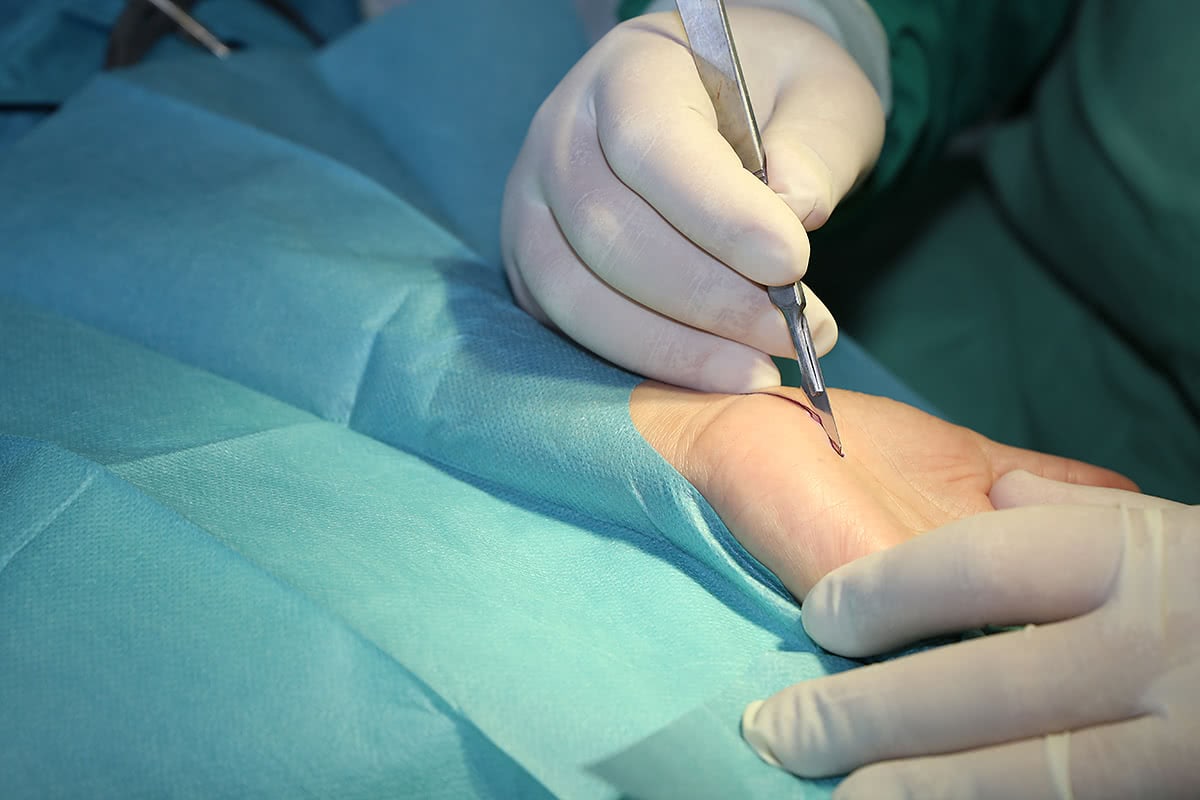Introduction
In mild and early stages, the condition can be managed conservatively with splinting, holding the wrist in a position where the nerve is under less pressure. Carpal tunnel syndrome will however often require surgery.

Indications
If conservative treatment is not effective, then surgery offers a reliable way of alleviating the symptoms of carpal tunnel syndrome.
Preoperative Instructions
The procedure is usually day surgery and you will be admitted on the morning of the surgery. The hospital will discuss the time of arrival and fasting arrangements. You would not normally have to stop any regular medication prior to this minor procedure but Dr Stewart can advise you about your specific requirements.
Procedure
Surgery involves releasing the pressure on the nerve by dividing the tight band lying above it – the transverse carpal ligament. Carpal tunnel release can be performed in an open fashion or with keyhole endoscopic surgery. The eventual results are similar, but for some people endoscopic surgery can have faster recovery times and less scarring. The procedure can be performed under local or general anaesthetic.
Postoperative Instructions
Carpal tunnel decompression is performed as day surgery. Depending on the anaesthetic used you may spend a couple of hours in recovery before being discharged. You will have a dressing on your hand but will still be able to move your fingers.
Risks
The main problem after carpal tunnel release is a painful scar. This usually settles down after a few weeks and hand therapy can help with this. If the nerve compression is very severe it may take months for the nerve function to fully recover.
Treatment Alternatives
For carpal tunnel syndrome that is not responding to splinting, surgery is usually the best option. In rare cases a steroid injection in the carpal tunnel can improve symptoms but this is reserved for cases where the symptoms are severe and there is a good reason to avoid surgery (such as pregnancy).
